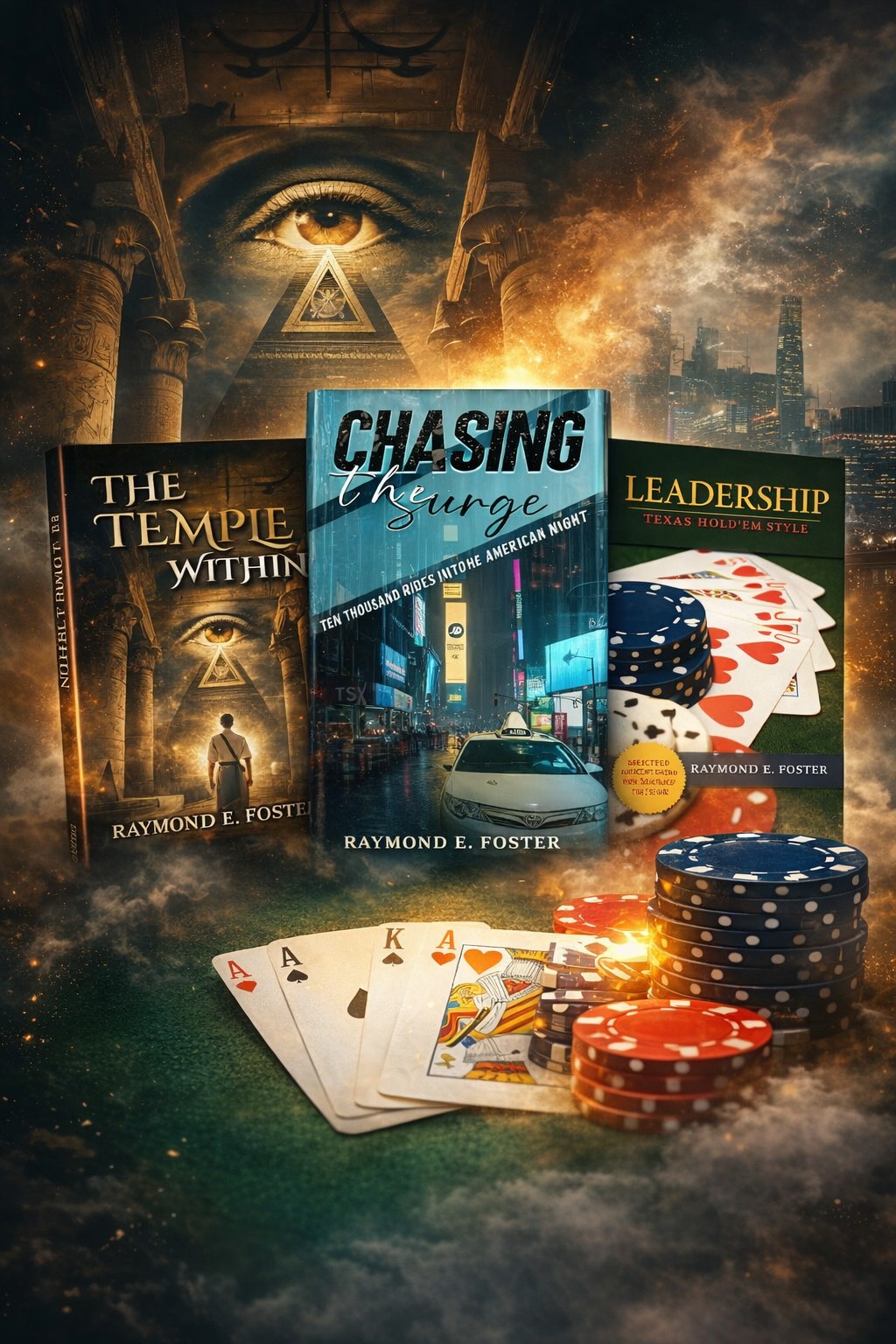Leadership: Texas Hold 'Em Style
|
| |
|
What did you miss
in the first 80 Episodes of American Heroes Radio?
Criminal Investigations
Computer Crime
Police Corruption
SWAT Operations
Secrets of Marine Corps Leadership
NYPD Emergency Services Unit
Becoming a Police Officer
How to Become Private Investigator
Homicide Investigations
Schools as Terror Targets
Iraq: An RPG to the Head and a
Silver Star
Citizen Survival of Terrorist
Attacks
Aviation History
Surviving Bootcamp
Interviewing Sexually Motivated
Offenders
Special Forces Soldier
World War II Fighter Pilot
Sub Hunter
Forensic Investigator
Military Music
Office of Air Force Special
Investigations
Careers in Corrections
Vietnam War Story
Confessions of an Oakland Cop
Jihad and American Medicine
American
Heroes
Radio |
|
Greetings!
Thank you for subscribing to the American Heroes
Press Newsletter. In the September 2009 issue we
continue to bring you a wide variety of
information for and by American Heroes - military,
police and fire personnel. Of special note, we
have upgraded the website for American Heroes
Radio - giving you unrestricted access to all of
the previous episodes as well as comprehensive
information the upcoming episodes.
|
|
Forget Everything you Learned
in the Academy
Lieutenant Raymond E. Foster, LAPD (ret.)
Nearly every new cop has heard a field training
officer or senior partner utter the phrase, "Forget
everything you learned in the academy." Indeed, in my
conversations with senior Non-Commissioned Officers
(NCOs) from several branches of the military there is
a similar "forget what they told you in Basic."
That's right. It would appear that the REMFs in
training division don't know jack about field
operations.
|
|
Criminals, Militias, and Insurgents: Organized
Crime in Iraq
 Dr.
Williams looks in detail at major criminal activities,
including the theft, diversion, and smuggling of oil,
the kidnapping of both Iraqis and foreigners, extortion,
car theft, and the theft and smuggling of antiquities.
He also considers the critical role played by corruption
in facilitating and strengthening organized crime and
shows how al-Qaeda in Iraq, Jaish-al-Mahdi, and the
Sunni tribes used criminal activities to fund their
campaigns of political violence. Dr. Williams identifies
the roots of organized crime in post-Ba'athist Iraq in
an authoritarian and corrupt state dominated by Saddam
Hussein and subject to international sanctions. He also
explains the rise of organized crime after the U.S.
invasion in terms of two distinct waves. Dr.
Williams looks in detail at major criminal activities,
including the theft, diversion, and smuggling of oil,
the kidnapping of both Iraqis and foreigners, extortion,
car theft, and the theft and smuggling of antiquities.
He also considers the critical role played by corruption
in facilitating and strengthening organized crime and
shows how al-Qaeda in Iraq, Jaish-al-Mahdi, and the
Sunni tribes used criminal activities to fund their
campaigns of political violence. Dr. Williams identifies
the roots of organized crime in post-Ba'athist Iraq in
an authoritarian and corrupt state dominated by Saddam
Hussein and subject to international sanctions. He also
explains the rise of organized crime after the U.S.
invasion in terms of two distinct waves.
|
Change is Inevitable - Roll with It
Sergeant Andrew G. Hawkes
As officer's age and gain more experience they often find
themselves in the midst of an ever changing world of
technology, laws, training and equipment. I remember when
I first started out we were the first real generation that
did not even consider carrying a wheel gun as a duty
weapon. We would look at veteran officers and their
revolvers as dinosaurs that needed to change. I told
myself that I would never have a problem with adapting to
innovations and new things because we had the latest and
greatest equipment and little would change over the course
of my career. Boy was I wrong!
|
 Amazon
Top 50 Reviewer Praises Leadership: Texas Hold
'em Style Amazon
Top 50 Reviewer Praises Leadership: Texas Hold
'em Style
Charles Ashbacher, a Top 50 Reviewer on
Amazon.com posted a review of Leadership Texas
Hold 'em Style. According to Amazon.com, a
"Top 50 Reviewer" identifies Ashbacher as
having "helped their fellow customers make
informed purchase decisions on Amazon.com with
their consistently helpful, high-quality
reviews." Charles Ashbacher has reviewed over
4,800 books and received nearly 14,000 votes
from readers with an 88% ranking as finding
his reviews helpful.
Read On
|
 General
George S. Patton, Jr. and The U.S. 2nd Calvary: Patton's
Ghosts of the Third Army General
George S. Patton, Jr. and The U.S. 2nd Calvary: Patton's
Ghosts of the Third Army
By Albert De Amicis
This paper addresses two of my heroes,
the Greatest Combat Commander of the Third Army in World
War II, General George Smith Patton, Jr., and Private
First Class Albert Frank De Amicis, my father, who
served in the 2nd Cavalry, Troop A, Recon, 2nd Squadron,
Mechanized, and was attached to the Third Army. The 2nd
Cavalry was labeled by the Nazis as Patton's Ghosts of
the Third Army. These men wore this "crown" with pride
and the distinction of fighting behind enemy lines,
taking prisoners, disrupting communication and the
enemy's infrastructure, and killing as many Germans as
they could. That was their mission.
Read On
|
|
Expanding Police Ability to Report Crime: The
National Incident-Based Reporting System
By David Hirschel, Ph.D.
The Uniform Crime Reports (UCR) is the FBI's widely used
system for recording crimes and making policy decisions.
It has tracked data on seven crimes since 1930: murder,
robbery, rape, aggravated assault, burglary, theft and
vehicle theft. In 1979, the UCR started reporting on
arson. Today, nearly 17,000 law enforcement agencies
report UCR data to the FBI. UCR data have several
limitations that make them unsuitable for analyzing
local crime.
Read On
|
 Verbal
and Non-Verbal Indicators to Assault Verbal
and Non-Verbal Indicators to Assault
By Tracy E. Barnhart
When we speak about the "use of force," I notice more
and more that officers either need or want the green
light to be given to them before they act. Correctional
officers deep down have an intimate fear when it comes
to the use of force of either reacting too soon, or too
late resulting in injury of someone, or not at all. They
have a natural ingrained fear of the criminals
themselves, their administration not backing them for
their actions or decisions as well as their peers not
having their backs because of those very same reasons.
They have terms thrown at them such as, "Reasonable,"
"Excessive," and "Liability," with no clear cut
explained definitions as well as no clear cut directions
or leadership by the administrations. It is often said
that it is easier to ask for forgiveness than to request
permission, but in today's litigious society this may be
true, but painfully unforgiving on your career.
Read On
|
Utilizing Powerful Peace-Creating Technologies to
Combat Cyber Warfare
By
Maj. Gen. (Ret.) Kulwant Singh and Dr. David Leffler
Imagine an approach to peace so powerful that it can
prevent cyber warfare, plus all other types of terrorism
and warfare. This approach utilizes large groups of
peace-creating experts practicing ancient technologies
of consciousness that harness the most powerful level of
nature Murrahs functioning - the unified field described
by superstring theory. Research published in
peer-reviewed journals indicates that such groups can
effectively defuse and prevent social problems like
crime, war and terrorism.
|
|
 Ten
Ways You Can Use the NCSTL Web Site Ten
Ways You Can Use the NCSTL Web Site
by Diana Botluk
Where do you go when you need to know more about a type of
forensic science or a particular scientific evidentiary
issue? Whether you are a law enforcement professional
looking for information on voice analysis, a lawyer
preparing a forensic anthropologist for trial, an academic
doing research on forensic linguistics, or a person who
just wants to know if the latest story line on CSI: Miami
could possibly be true, there is a Web site that can help.
|
|
Redemption in an Era of
Widespread Criminal Background Checks
By Alfred Blumstein and Kiminori Nakamura
One of the stated goals in President Barack Obama's
crime and law enforcement agenda is to break down
employment barriers for people who have a prior criminal
record, but who have stayed clean of further involvement
with the criminal justice system. To understand how many
people are affected by some of these barriers, we only
need look at the widespread computerization of criminal
history records in the United States.
|
 Getting
Ready: How Arizona Has Created a 'Parallel Universe' for
Inmates Getting
Ready: How Arizona Has Created a 'Parallel Universe' for
Inmates
by
Dora Schriro
Throughout my years of working in corrections, I began to
notice that some things never changed. The "good" inmate
stayed on his bunk, kept his head down and followed
orders. Upon release, the same "good" inmate too often
became a really lousy ex-offender. Back in the community,
the "good" inmate was ill-equipped to make good decisions
because the only thing he had learned to do in prison was
sit on his bunk and take orders. Not having spent the
workday or his leisure time productively while confined,
the newly released offender was not prepared to find or
keep a job or develop better relationships. Lacking these
critical skills, it was more likely that "good" inmates
would make bad choices on the outside.
|
|
Making Money with a Computer Virus
Running a large number of websites and a small office
network has certainly given me a lot of experience in
being exposed to the dangers of Viruses, Trojans and other
MalWare. Also, having taught an introductory course in
computer crime and written a book on technology - well, I
have at least a pretty good idea about the dangers of the
Internet. But, I didn't think I would ever fall into a way
to make money with computer viruses.
|
|
| |
|
Support the newsletter by
forwarding and contributing!
Sincerely,
|
|
Lieutenant Raymond E. Foster, LAPD (ret.)
|
|
|
